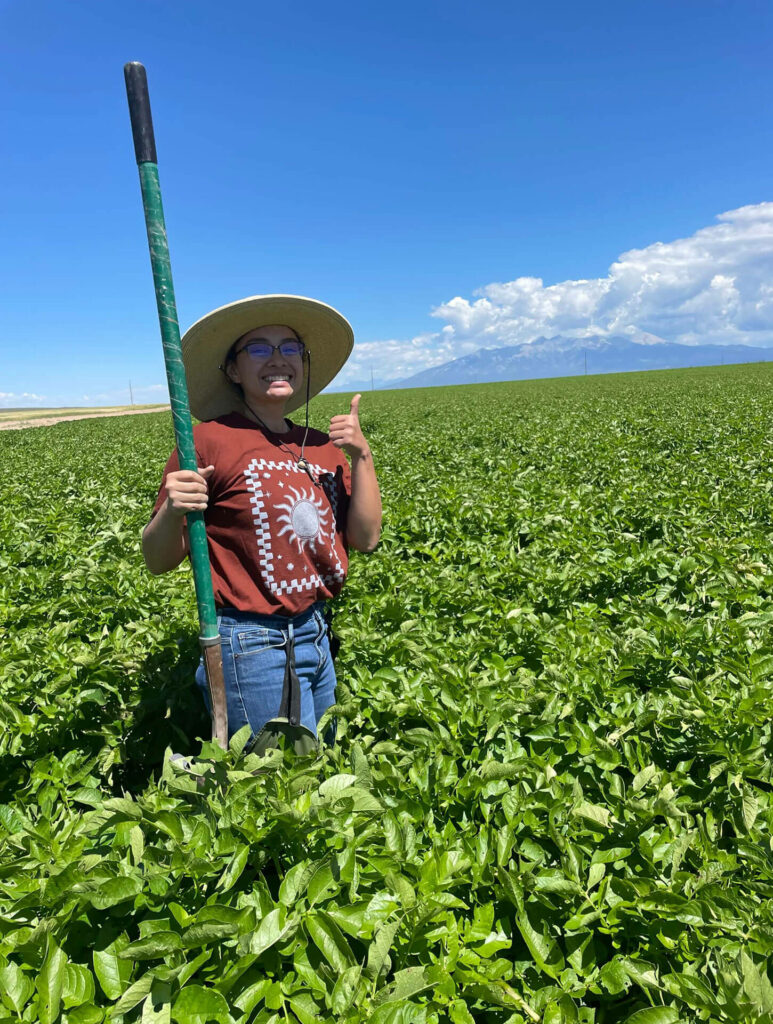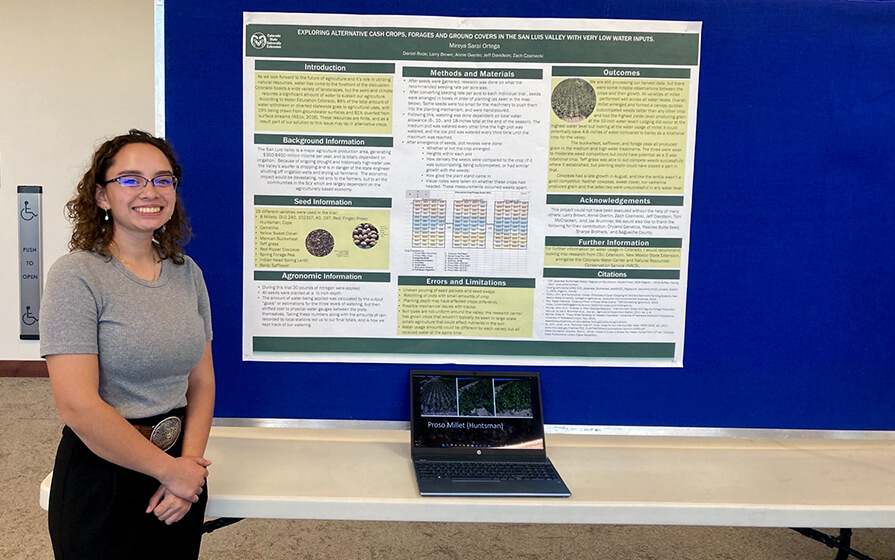One hot sunny day, Mireya Ortega was spraying soil in Colorado’s San Luis Valley. The ground was warm and dry and the air wicked sweat quickly as she and her pals were doing science. Suddenly, a swarm of mosquitoes appeared and chased them around the pasture, messing with their research.
Looking back, she laughs at the experience. It was a first step for a budding researcher who participated in a unique CSU internship.
“I didn’t know what I was stepping into, and the whole time I was having the time of my life pulling potatoes, and that’s not something that I had envisioned that I’d ever do,” said Ortega, a senior studying soil science and agronomy.
“Go into any experience with an open mind … just go with the flow, and then see where that takes you. Because I think that works out a lot more than it probably should.”
Mireya Ortega
So it is for many such students who join the CSU Summer Extension Internship Program. Her term started in summer 2022 in a potato field in the high desert. She didn’t know where it would lead – neither did her cohorts nor the other students who’ve done the program – but she’s on her way, and that’s the best part of the experience.
Every summer, students venture across Colorado to conduct real-life research through the program, which empowers the next generation of scientists to address critical issues with innovative research.

Ortega’s summer of agriculture research involved long, hard days working in the field planting seed potatoes from the back end of tractors, driving farm equipment, and treating soil. Alongside local ranchers, her team spent 10 weeks researching crop alternatives, soil treatments, and drought resistance.
“All of our experiments were done with a lot of local ranchers on the soil side, which I like a lot because it’s like you could see the community really pulling through and coming together,” Ortega said.
By connecting students with communities, collaborative research leads to effective solutions. Ortega interacted with many farmers in the valley, and each plot of land and worker had a new story. Over the summer, she learned how to best support them through her research.
“I enjoyed the community I found in the valley between the cooperators we interacted with and the variety of people we worked with,” Ortega said. “Getting to know them and feeling like the work we were doing could help them have a better growing season made me feel good.”
The internship ignited Ortega’s passion for research and fieldwork. She learned the importance of addressing critical agriculture and water problems, but she didn’t always have such a confident grasp of her research. As a first-generation transfer student, her initial college experience was challenging and isolating.
“Being first-gen just makes everything a little bit harder to navigate,” Ortega said. “But it impacted the way that I view my education and the way that I see things in the classroom.”
Ortega decided to pursue the internship on a whim to get out of her comfort zone and make the most of her college experience. As a result, she is now surrounded by a large network of friends and mentors who support and inspire her continued research with the Natural Resources Conservation Service USDA soil lab at CSU.
Ortega offers this advice for new researchers: “Go into any experience with an open mind … just go with the flow, and then see where that takes you. Because I think that works out a lot more than it probably should.”

Mireya Ortega, College of Agricultural Sciences ('23)Rachel Bull is a student communication specialist in the Office of the Vice President for Research.